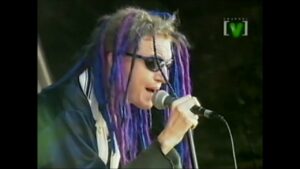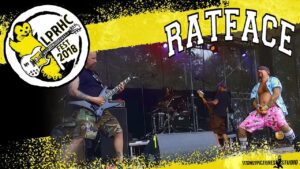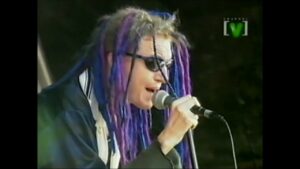Formation & Members
Rancid, a name synonymous with the gritty, unapologetic sound of punk rock, emerged from the East Bay punk scene in 1991. The band was founded by Tim Armstrong and Matt Freeman, former members of the influential ska punk band Operation Ivy. The duo, eager to continue their musical journey, sought to create a band that amalgamated their punk roots with a fresh, hard-hitting sound. Joining them were Brett Reed on drums and Lars Frederiksen on guitar, solidifying Rancid’s lineup that would go on to become iconic in punk circles. Each member brought a unique influence, contributing to the band’s distinctive sound.
Musical Style & Characteristics
Rancid’s musical style is a potent blend of punk rock, ska, and hardcore, characterized by its aggressive guitar riffs, rapid drum beats, and raw, emotive vocals. Their sound is often marked by catchy hooks and anthemic choruses, which provide a stark contrast to the gritty lyrical themes of social and political unrest. Rancid’s music is infused with a sense of urgency and authenticity, drawing from their personal experiences and the socio-political climate of their formative years. The band is also known for their tight musicianship and the versatility of their sound, which seamlessly shifts from fast-paced punk to reggae-influenced ska beats.
Key Works & Discography
Rancid’s discography is a testament to their evolution and enduring impact on the punk scene. Their debut album, Rancid (1993), introduced their raw punk sound to the world. However, it was their second album, Let’s Go (1994), that catapulted them into the mainstream consciousness, thanks in part to the hit single “Salvation.” The band’s third studio album, …And Out Come the Wolves (1995), is often regarded as their magnum opus, featuring classics like “Ruby Soho,” “Time Bomb,” and “Roots Radicals.” This album not only solidified their status as punk icons but also broadened their appeal beyond the punk community.
Subsequent albums such as Life Won’t Wait (1998) and Rancid 2000 continued to showcase their dynamic range and commitment to punk ethos. In the 2000s, albums like Indestructible (2003) and Let the Dominoes Fall (2009) displayed their ability to evolve while staying true to their roots. More recent works like Honor Is All We Know (2014) and Trouble Maker (2017) have reinforced Rancid’s place as a stalwart of punk rock.
Influence on Other Bands/Scenes
Rancid’s influence extends far beyond their own discography. They have played a pivotal role in shaping the sound and ethos of modern punk rock. Many bands cite Rancid as a major influence, including The Interrupters, Green Day, and Blink-182. Their fusion of punk and ska elements opened new avenues for bands looking to experiment within the genre, and their commitment to DIY principles has inspired countless musicians to take control of their creative processes.
Rancid’s impact is also evident in their contribution to the East Bay punk scene, which has become a hotbed for punk talent. Their success helped bring attention to the scene and paved the way for other bands to gain recognition.
Breakups or Reunions
Despite the volatile nature of punk bands, Rancid has largely remained intact over the decades. There was a brief hiatus in the early 2000s when Tim Armstrong and Lars Frederiksen pursued side projects, but the band never officially broke up. This period allowed them to explore other musical avenues, with Armstrong’s solo work and Frederiksen’s band, Lars Frederiksen and the Bastards, gaining traction. The band reunited to release Indestructible in 2003, and they have continued to produce music and tour since then.
Current Reputation & Legacy
Today, Rancid is regarded as one of the stalwarts of punk rock, maintaining a fervent fan base and critical acclaim. Their ability to stay relevant in a constantly changing musical landscape is a testament to their talent and dedication. Rancid is celebrated not only for their music but also for their influence on the punk scene and their commitment to social and political causes. They continue to tour and perform, bringing their energetic and passionate performances to new generations of punk fans.
Conclusion
Rancid’s journey from the East Bay punk scene to international acclaim is a testament to their influence and enduring appeal. They have consistently delivered powerful music that resonates with fans around the world, staying true to their punk roots while evolving with the times. Rancid’s legacy is one of innovation, inspiration, and resilience, ensuring their place in the pantheon of punk rock greats. As they continue to produce music and perform, Rancid remains a vital force in the punk community, inspiring new generations to pick up a guitar and make their voices heard.









